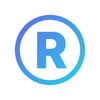Today we'll talk about the differences between desktop and web applications. We do not promise that we can be completely unbiased, but we will try to honestly consider all pros and cons.
A web application works through a browser, using it as a runtime, a desktop application - is installed, launched, and run locally. Let's compare them according to their main characteristics.
Installation, update
The web application does not require installation, all updates take place on the server, are delivered to users immediately - you just need to reload the page or exit, and then log back into your account. But sometimes for it to work, you need to install additional libraries or use secure network protocols.
The desktop application needs to be installed on a computer or mobile device, updated every time a new version is released. Even though most often the process is automated, it still takes users' time and device resources. Additionally, you will have to track versions on each computer, smartphone, and tablet.
Publish/deploy
The web application is published on a local or cloud server, and the update process takes place there. In this case, the server is needed in any case, even if the solution is quite simple. After all, in addition to the frontend, with which users will work through the browser, you need to host the backend somewhere.
The desktop application will have to be installed manually on each device. In a company with many jobs, this can take a long time. The good news is that you don't have to choose a server or search for resources to publish if we are not talking about a client-server solution.
Reliability
The operation of a web application depends not only on how competently it is developed and the characteristics of the user device but also on the speed of the Internet connection and the performance of the remote server.
The desktop application works autonomously, so the main thing is the quality of the code and the stability of the hardware on which this code is executed. But if communication with the server is necessary, then the same problems arise as the "competitor" has.
Availability
The web application is accessible from anywhere in the world, from any device, and user files are always at hand. But only if there is an Internet connection or the ability to work offline and download and upload data is implemented.
The desktop application is always available - but only from the device on which it is installed. To work from different devices, you will have to install it on each, and also figure out where to store the files so that you always have access to them.
Cross-platform
The web application will work equally well on any device, it can be a stationary computer, laptop, tablet, or smartphone - after all, it practically does not depend on hardware or operating system. The main thing is the right browser. Typically Google Chrome, Mozilla Firefox, Apple's Safari, or a Windows browser (Microsoft Edge / Internet Explorer) will work for most web clients.
The desktop application depends on the operating system, processor, video card, and several other parameters. You have to take into account the nuances of each environment (including when "catching" errors), write code taking into account possible options, hire individual developers or even entire teams for versions for different OS.
Functionality, performance
The web application is completely dependent on the browser and its technology. Therefore, there are several restrictions, for example - in access to the hardware of your device. It is impossible to get around this and some other restrictions (at least now). But several tasks can be solved according to the principle "what cannot be rewritten, can be built on or expanded." Editors of documents, images, audio, video, 3D graphics; project management systems; file storage; no-code constructors - work successfully in browsers. Rapid service integration tools and front-end libraries further expand existing capabilities.
The desktop application allows you to implement any function - in this, it surpasses the web. In any case, no one has yet developed a full-fledged online analog of Photoshop or Sony Vegas. System utilities are the realm of desktop development. As well as programs that need to work in the background for a long time - for example, chats or torrent clients - it will simply be inconvenient to work with them through a browser. Also, such software is more often used for specific projects, with non-standard interfaces or functions. Therefore, web development does not present any danger for desktop programmers yet - these technologies will develop in parallel, just for different tasks.
As for the speed of work, everything is not as clear as it might seem. Although the browser client constantly exchanges data with the server, the performance will largely depend on how competently it is designed, the "purity" of the code, the capabilities of the equipment, and the stability of the communication channel. The difference in performance, which is obvious during testing, is often invisible to users.
Security
The web application developed using modern protocols and security tools can fully ensure the safety of data. However, developers cannot influence some points: browser, cloud server, communication channel - they can increase the level of security due to additional means of verification, but also reduce it due to their vulnerabilities. A definite plus for users: such software is easier to control. The limitations of the environment make it less likely that it will secretly gain access to files or launch a process.
The desktop application is configurable more flexibly, which means that theoretically all potential vulnerabilities can be foreseen during its development. In practice, it is unlikely. However, you can still make it completely safe. But only if the device on which it is installed will not connect anywhere, even to a secure local network. Otherwise, there will still be a risk.
It is difficult (if not impossible) to say what is safer. This is influenced by many factors, primarily the human factor. But the meaning of all security measures lies indeed in protection from the human factor.
The trust in desktop software is higher. Some organizations fundamentally disagree with browsers, and many users are still wary of them. However, the situation is changing - with the development of technologies, people's loyalty to them grows.
Our findings
The possibilities of browser development are enormous, and its potential is far from being fully revealed. Technology is advancing, the IT market is growing, offering more and more applications - all other things being equal, users will choose the web simply because it is more convenient. If we talk about solutions for corporate clients, then browser applications are irreplaceable. They are flexible, versatile, do not require preliminary preparation of the environment, and save company finances, hardware resources, and employee time.
Alternative opinion
But consider a different opinion. Some developers believe that the prospects are far from cloudless. Browser operating technologies are too imperfect, too much low-quality software has already been "coded". Therefore, users of browser solutions will fall back to desktop solutions. This trend will continue as long as browser developers use Java Script in large quantities. Only when a real alternative appears will it be possible to make predictions for the future.
Web applications are already suitable for solving many problems - for both business and ordinary users. If you decide to develop your own, use the no-code AppMaster.io platform.
Ready-made blocks of code and visual tools for working with them will help you create a web application and its back-end much easier and faster than classical programming methods!






Top comments (0)